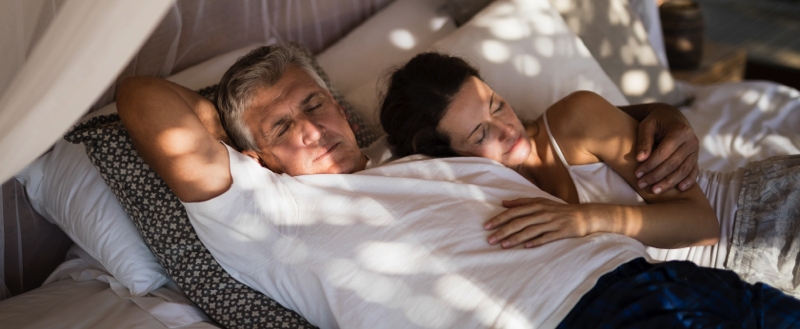
02 Jan Sweet Dreams

Jan Fowler
is author of the best-selling book, “Hot Chocolate for Seniors”(winner of national & international awards); winner of Gold Halo Award from the So. California Motion Picture Council for Outstanding Literary Achievement; winner of First Place Excellence in Journalism Award (SPJ –Southern CA); Town & Gown “Phenomenal Woman” Award; former television host & KSPA radio host of “Senior Living at its Best with Jan Fowler”; speaker, contributing author for “Savvy Women Revving Up for Success”; founder of Starburst Inspirations, Inc. 501(c) (3) nonprofit which supports Redlands Drug Court. www.janfowler.com. Jan welcomes feedback and comments about her columns and invites you to leave her a message on her website.
Sweet Dreams
“Now I lay me down to sleep…” Children’s Prayer
Darn, I could barely sleep a wink last night.
I was too busy chasing a taxi which eluded me no matter how fast I ran. I know experts would jump at this chance (I can see them salivating already) to metaphorically diagnose me as having had one of those anxiety-type dreams caused by too much stress in my life. Me? Stressed? Why, this makes no sense at all—the reason being that I lead such a “push-button” life.
Think of it. My microwave defrosts for me (no need to pre-plan meals), my word processor deletes, corrects, and spells for me (no need for white-out), and my computer allows me to make payments or place orders on line (who needs stamps?)
And thanks to the wonders of email, the mere click of a few magic buttons enables me to forward pictures to out-of-state family—shooting them through cyberspace with laser-speed lightning—thereby saving on the cost of developing. Thanks to cruise-control, I am fuel-efficient, plus am no longer anxious over the possibility of being nabbed with a speeding ticket. My cordless phone allows me to trim my rosebushes while making party plans with friends and my cell phone permits me to call ahead if I’m delayed by traffic.
Plus, there are all those electronic remotes stashed in the basket next to my TV which I can reach for in an instant just in case I might (yawn!) become bored with the evening news and want to change channels or switch to a DVD, video, or CD. There’s automated-this, automated-that, and buttons, buttons, buttons everywhere to push-push-push.
You too could lead a push-button life without stress if you wish.
What? What’s that you say? You say you already enjoy countless time-saving privileges afforded by modern technology, yet still can’t get a good uninterrupted night’s sleep? Funny you should say that, for according to the National Sleep Foundation, so do millions of others. In fact, approximately 44% of older people experience some form of insomnia at least several nights a week. Not good, especially since some experts are telling us that we require more sleep as we age.
By the way, as long as we’re on the subject (in case you’d like to impress your friends with some clean wholesome family-rated trivia), the old ditty “Good night, sleep tight, don’t let the bedbugs bite” originated in the old days when a mattress was supported by ropes, not box springs. As you can well imagine, the tighter the ropes and less sag in the mattress, the better one’s night sleep (you might want to use this sometime as “filler” for awkward gaps in conversation while waiting for the next course to be served).
Sleep helps to recharge and refresh the brain and body. Furthermore, sleep is a time of healing and growth. In fact, according to some studies, sleep deprivation may reduce immune function and alter metabolism. Fortunately, sleep habits are usually addressed and assessed these days as part of routine medical checkups because lack of sleep can have a such profound effect upon overall health. It has been proven that insufficient sleep can make you more prone to disease, besides which the ever-beating heart gets a breather during sleep.
It is interesting to note that some people bolster the theory that many an unwise international decision or negotiation was made by a sleep-deprived government official while suffering jet-lag.
Sleep needs are highly individual. Some people insist they don’t perform well during the day if they haven’t had x number of hours of sleep the night before; others can successfully play “catch-up” and satisfy their sleep debt by sleeping 10-12 hours a night on weekends. But experts advise that most healthy adults generally do best with 7-8 hours sleep per night.
Sleep Apnea
Untreated sleep apnea, a condition in which episodes of airway obstruction occur, causing the heart rate and blood pressure to surge, increases a person’s risk for heart attack, stroke, memory loss, and depression. Consult your physician.
Snoring
“Laugh and the world laughs with you, snore and you sleep alone.” Anthony Burgess
Snoring causes sleep disruption in approximately 37 million people. Loud snoring may be one of the symptoms of obstructive sleep apnea and should be discussed with your doctor.
Sleep Stages & Dreams
I don’t know about you, but I’m usually a very sound sleeper—it’s the dreams that cause me to wake up feeling exhausted. According to the scientists, there are two types of sleep: REM (rapid eye movements), when most dreams occur—particularly those bizarre or highly visual “random-type” ones—and non-REM (NREM), which comprises 75% of total sleep time, in which there is relatively little dreaming.
If you wake up and can still recall a dream very vividly, you’ve probably awakened from REM sleep; if you awake from non-REM, you won’t remember a dream. Both REM and non-REM are needed to get a good night’s rest. Normally, 25% of a night’s sleep is spent in a REM session—that is, a dream, running from five to 30 minutes—and the rest in non-REM.
Dreams almost always involve you and encompass things that have happened to you recently. They could also convey some of your deepest wishes and fears. To further understand your category of dream, for starters, begin by asking yourself the following: If you dream about falling, ask if your life feels out of control. If you’re being chased, are you running from a problem? If you’re naked in public, are you trying to hide something or do you feel unprepared?
If your dream is about taking a test (or forgetting to take one), do you feel you’re being scrutinized or are up against a challenge? If you’re involved in a chasing dream where your legs just won’t move fast enough, are you suffering from anxiety from having too much on your plate? And finally, if you dream about flying, this may be a good thing because flying typically means that you feel “on top of things”. To explore the subject further, go online and visit www.Howstuffworks, then click onto How Dreams Work.
Tips for Sleeping
With all due respect for W. C. Fields, who said “The best cure for insomnia is to get a lot of sleep”, there are some sensible tips worth sleeping on:
To begin with, exercise regularly, maintain a consistent sleep schedule, and avoid caffeine (this may mean chocolate!) after 4:00 p.m. Also avoid alcohol before bedtime because it can disrupt the brain’s normal patterns during sleep. You might also ask your doctor if any of your medicines could interfere with sleep. And oh yes, do try to limit your midday naps to 45 minutes.
Do you need soothing music to help you fall asleep? Many Americans love to wind down from a long day by lying in bed (some prefer the sofa), and using late-night television as their tonic. My favorite is Jay Leno’s comedic opening monologue on “The Tonight Show”. After five minutes of laughter at Leno’s clever rapid-fire jokes about the day’s news, I’m generally relaxed enough to drift off to dreamland.
And if all else fails, remember what Dale Carnegie said. “If you can’t sleep, then get up and do something instead of lying there worrying. It’s the worry that get you, not the lack of sleep.”
Sweet dreams, all you darlins’!
This week’s tip: It helps to learn the correct lingo to use when describing pain symptoms to your doctor. For example, does your pain burn? Throb? And if it’s in your stomach, how would you describe the ache? Is it dull, sharp, intermittent, continuous? The clearer and more precise you are, the easier it is for your physician to diagnose your ailment.
Next issue: Look for a tip on ways to “outsmart” pain.




Sorry, the comment form is closed at this time.